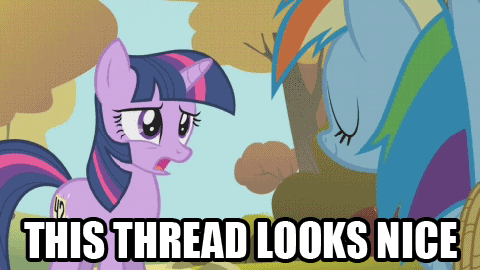You are using an out of date browser. It may not display this or other websites correctly.
You should upgrade or use an alternative browser.
You should upgrade or use an alternative browser.
The CTRL + V Game
- Thread starter Ryan
- Start date
Nameless fox
Really feeling it.
Fire said:when ur mom coms home and makes hte spaghetti
I was trolling some jerk in a game.
Gummysaur
erik is air, erik is life
cannedcommunism
idk man
Very little of his face is public knowledge. Most of it is shrouded in hair and glasses, and the rest does not convey much. His speech has the quality of a background hum, as if it were a form of silence. He can make the bravado of capitalism sound as melancholic as the laments of socialism. He appears to be in a perpetual trance of good-natured subordination. This is a type of man who has no recourse to the useful deceits of articulation. And, constricted by decency, he lacks the means of sly backdoor channels to deliver news favorable to him. Prime Minister Manmohan Singh has been this way since Indians came to know him in the 1990s as finance minister, a hero of economic reforms and the mascot of incorruptible middle-class scholarship. But now the nation is pretending that his flaws as a public figure are a sudden revelation. He is the most ridiculed Indian today. He is accused of not being an alpha male, of not reaching out more to the people, of presiding over a government that appears to be incompetent and has been rocked by corruption charges. And, of playing the part of an installation of the Gandhi family, which runs the Indian National Congress party like a fief. This month, he held a rare news conference at which he announced that he would not seek office if his party returned to power after the impending general elections. “Any senior clerk on retirement would have turned in a more sentimental performance than Manmohan did in stating he would not pursue a third term,” wrote the sociologist Shiv Visvanathan. “He appeared like a sad, tired squirrel pointing out nuggets of his performance,” he added. Reacting to the decline of his own stature, Mr. Singh said during the news conference, “History will be kinder to me than the contemporary media.” A man who says this is usually masquerading hope as prophecy. But there are good reasons why Mr. Singh might be right. For nearly a decade, his innocuous nature and integrity succeeded in providing stability to two successive governments and the Congress party. Also, despite the odds against him, he pushed through important legislation. Mr. Singh has not changed over the years. It is the middle-class perception of him that has, a perception largely influenced by the mainstream media. The chief accusation against him by political observers is that he has been unable to break out of the mold of being an employee of the Gandhi family, and that he never resigned on principle even though he was presented with several instances when the Congress party overruled or embarrassed him or diminished his dignity. Remarkable, then, that the relationship between Mr. Singh and the Gandhi family is similar to that between the editorial head of almost any Indian news organization and its owner. Every editor in Delhi has a Manmohan Singh in him. In a nation where the preeminence of ethics in both politics and journalism is absolute in theory but ambiguous in practice, the prime minister and the editor occupy roles that require relentless negotiations with a higher authority from whom they derive their powers. Both have to fight for their independence, as it is not easily granted, and find ways to influence “management” to do what is right. Both make compromises for the sake of long-term benefits. And the only card they possess but cannot use too often is the threat to quit and walk away in a huff. It is not known whether Mr. Singh ever threatened to quit, because this is a form of heroism that is usually staged in private. What is clear is that he never did quit, even though he had good reasons to. “I have never felt like resigning at any time,” he said. “I have enjoyed doing my work.” A man who quits his job on principled grounds may appear glorious to most people. But many times the more difficult path is not what appears heroic. Mr. Singh chose the difficult path — to endure the blows and achieve the ambition he once stated in a speech: “For the short period, we mortals occupy the places we do, let us strive to do our best, for India, for the world, for humanity.”
I'm...at a library...
I'm...at a library...
staticistic1114
im hungry
cannedcommunism
idk man
af160812
Kyoryuu Sentai Zyuranger
To those of you that have only watched Power Rangers up to this point, the rest of these seasons might be a little familiar to you. Super Sentai’s 16th team is Saban’s first. From here on out, with the exception of a few teams, every season would become a Power Ranger team.
When the witch Rita Repula is released from space dumpster, Zordon has his robot Alpha 5 call upon 5 teenagers with..oh wait….sorry...wrong show.
Bandora the witch started a war on the dinosaurs due to the death of her son. After she had caused much devastation, the Guardian Beasts sealed her and her minions on the planet Nemesis. Five members of each of the ancient human tribes were cryogenically frozen to combat the witch,, in the chance that she would escape from her imprisonment. Skip forward to modern times, can Bandora is released by 2 Japanese astronauts. The Zyurangers are awaken once again to fight her and protect the world. Later, the leader's elder brother the Dragon Ranger, was released and fought against them because of jealousy and vengeance even though his life was limited.
Z: And here is the one that everyone and their mother knows of. This is the season that would becomes the first Power Rangers. Not only that, Zyuranger is the season that introduced the concept of the 6th ranger, though the idea had been around since Goggle V.
I am working on my sentai panel
To those of you that have only watched Power Rangers up to this point, the rest of these seasons might be a little familiar to you. Super Sentai’s 16th team is Saban’s first. From here on out, with the exception of a few teams, every season would become a Power Ranger team.
When the witch Rita Repula is released from space dumpster, Zordon has his robot Alpha 5 call upon 5 teenagers with..oh wait….sorry...wrong show.
Bandora the witch started a war on the dinosaurs due to the death of her son. After she had caused much devastation, the Guardian Beasts sealed her and her minions on the planet Nemesis. Five members of each of the ancient human tribes were cryogenically frozen to combat the witch,, in the chance that she would escape from her imprisonment. Skip forward to modern times, can Bandora is released by 2 Japanese astronauts. The Zyurangers are awaken once again to fight her and protect the world. Later, the leader's elder brother the Dragon Ranger, was released and fought against them because of jealousy and vengeance even though his life was limited.
Z: And here is the one that everyone and their mother knows of. This is the season that would becomes the first Power Rangers. Not only that, Zyuranger is the season that introduced the concept of the 6th ranger, though the idea had been around since Goggle V.
I am working on my sentai panel



